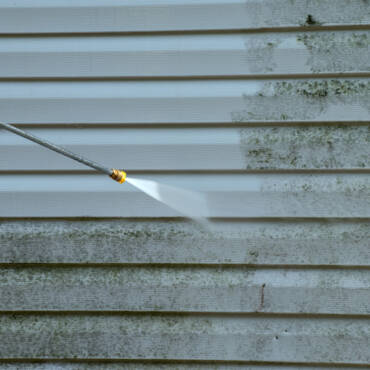 Ah! Fresh air and sunshine! Our parents and grandparents taught us that the best way to improve our health was to breathe in clean, outdoor air and stay outside as long as possible during warm weather.
Ah! Fresh air and sunshine! Our parents and grandparents taught us that the best way to improve our health was to breathe in clean, outdoor air and stay outside as long as possible during warm weather.
But is that always true? What about the days when we receive high pollen alerts on our phones? Or a text to inform us of poor air quality days or dangerously high temperatures?
Maertin Heating and Cooling explains why, sometimes, “fresh” air may actually be worse for our health than good old air conditioning.
High Pollen Counts
When you receive a high pollen count alert, that means there is a high number of grains of pollen in each cubic meter of air outdoors. Low pollen counts means there are less than 50 grams of pollen per cubic meter of air. A very high pollen count means there are 1,000 or more grams of pollen in that same measurement of air. Pollen counts that cause trouble usually begin in March with tree pollen. In May, you’ll see higher grass pollen. July through August, we watch weed pollen, and then we go to the first frost monitoring ragweed pollen.
When you have allergies, or breathing issues that are prompted by allergies, a high pollen count means breathing outdoor air exposes you to more allergens, raising your risk of having a severe reaction.
Poor Air Quality
A poor air quality alert can include four components. Ground level ozone comes from vehicle emissions, power plants and other fossil fuel consumption. Particulate matter is microscopic particles from demolitions, wood burning, forest fires, vehicles, fertilizing fields and other air borne specks like dust. Carbon monoxide is also generated from vehicles, fires and combustion. Sulfur dioxide is an emission from power plants and refineries.
High levels of any one or a combination of more than one of these components can enter lungs and impair lung function, leading to permanent damage. Poor air quality causes asthma attacks, chronic bronchitis, dizziness, blurred vision, cardiovascular damage and more.
Extreme Heat
Extreme heat occurs when we have at least two days in a row of temperatures above 90 degrees along with high humidity.
During extreme heat, your body works overtime to maintain a normal temperature. You may experience heat cramps, heat exhaustion with sweating, paleness, weakness, dizziness, fainting, nausea, headaches and vomiting, or heat stroke when your body temperature is above 103 degrees, skin that is red, hot and dry, a rapid pulse and dizziness, confusion or unconsciousness. In the United States alone, more than 600 people die from extreme heat each year.
Ah! Air Conditioning!
Researchers from the California Department of Public Health studied the effects of air conditioning on health. They found that air conditioning filters out pollen and outdoor pollutants, improving the indoor air quality, preventing asthma attacks, allergic episodes and lung damage. They also determined that frequent air conditioner use also means windows are closed, blocking potentially contaminated air from entering your home. In times of extreme heat, getting into air conditioning is the first and primary recommendation of ready.gov, because “air conditioning saves lives during extreme heat.”
The researchers did state that the air conditioning must be well-maintained, with filters changed regularly to reap these health benefits.
While fresh air sounds wonderful, there are many summer days that our air is less than healthy and sometimes even dangerous. Take advantage of alert and warning apps to know when to exercise, play and enjoy the outdoors – and when to stay inside for better health!
Do you have questions about the condition of your air conditioner or indoor air quality? Call Maertin Heating and Cooling at 708-479-9350. We’ll be happy to give your AC unit a thorough inspection to help keep your family in good health!




Add Comment